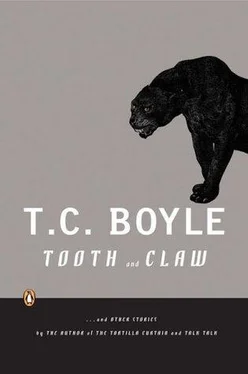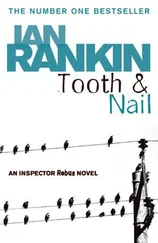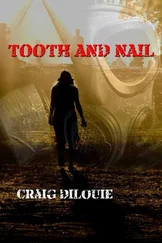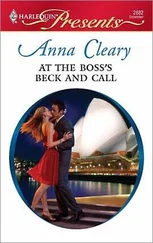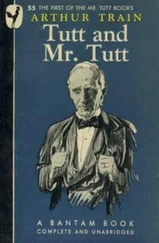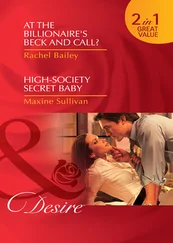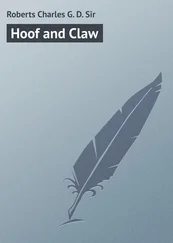There was another silence, and he was thinking it over, I could see that. From his point of view, this was no happy occasion. I wasn’t bleeding, but I stank like a corpse and I was leaving the scene of an accident and he was a witness and all the rest of it. But he was a good man, and he surprised me. “Yeah, sure,” he said, after a minute. “Climb in.”
That was when things got very strange. Because as I directed him to my house at the end of the lane by the side of the soon-to-be-refrozen lake, a curtain fell over my mind. It was a dense curtain, weighted at the ends, and it admitted no glimmer of light. “Here,” I said, “stop here,” and the curtain fell over that part of my life that played itself out at Phil Cherniske’s house.
A moment later, I found myself alone in the night, the taillights of the good samaritan’s car winking once at the corner and then vanishing. I walked down the dark lane thinking of Helen, Helen with her silver-foil eyes and smooth sweet smile, and I mounted the steps and turned the handle of the door thinking of her, but it wouldn’t turn, because it was locked. I knocked then, knocked at my own door, knocked until my knuckles bled, but there was no one home.
SO THE SKY is falling. Or, to be more precise, the sky is emitting poisonous rays, rays that have sprinkled the stigmata of skin cancer across both of Manuel Banquedano’s cheeks and the tip of his nose and sprouted the cataracts in Slobodan Abarca’s rheumy old eyes. That is what the tireless Mr. John Longworth, of Long Beach, California, U.S.A., would have us believe. I have been to Long Beach, California, on two occasions, and I give no credence whatever to a man who would consciously assent to live in a place like that. He is, in fact, just what my neighbors say he is — an alarmist, like the chicken in the children’s tale who thinks the sky is falling just because something hit him on the head. On his head. On his individual and prejudicial head. And so the barnyard goes into a panic — and to what end? Nothing. A big fat zero.
But let me tell you about him, about Mr. John Longworth, Ph.D., and how he came to us with his theories, and you can judge for yourself. First, though, introductions are in order. I am Bob Fernando Castillo and I own an estancia of 50,000 acres to the south of Punta Arenas, on which I graze some 9,000 sheep, for wool and mutton both. My father, God rest his soul, owned Estancia Castillo before me and his father before him, all the way back to the time Punta Arenas was a penal colony and then one of the great trading towns of the world — that is, until the Americans of the North broke through the Isthmus of Panama and the ships stopped rounding Cape Horn. In any case, that is a long and venerable ownership in anybody’s book. I am fifty-three years old and in good health and vigor and I am married to the former Isabela Mackenzie, who has given me seven fine children, the eldest of whom, Bob Fernando Jr., is now twenty-two years old.
It was September last, when Don Pablo Antofagasta gave his annual three-day fiesta primavera to welcome in the spring, that Mr. John Longworth first appeared among us. We don’t have much society out here, unless we take the long and killing drive into Punta Arenas, a city of 110,000 souls, and we look forward with keen anticipation to such entertainments — and not only the adults, but the children too. The landowners from several of the estancias , even the most far-flung, gather annually for Don Pablo’s extravaganza and they bring their children and some of the house servants as well (and even, as in the case of Don Benedicto Braun, their dogs and horses). None of this presents a problem for Don Pablo, one of the wealthiest and most generous among us. As we say, the size of his purse is exceeded only by the size of his heart.
I arrived on the Thursday preceding the big weekend, flying over the pampas in the Piper Super Cub with my daughter, Paloma, to get a jump on the others and have a quiet night sitting by the fire with Don Pablo and his eighty-year-old Iberian jerez . Isabela, Bob Fernando Jr. and the rest of the family would be making the twelve-hour drive over washboard roads and tortured gullies the following morning, and frankly, my kidneys can no longer stand that sort of pounding. I still ride — horseback, that is — but I leave the Suburban and the Range Rover to Isabela and to Bob Fernando Jr. At any rate, the flight was a joy, soaring on the back of the implacable wind that rakes our country day and night, and I taxied right up to the big house on the airstrip Don Pablo scrupulously maintains.
Don Pablo emerged from the house to greet us even before the prop had stopped spinning, as eager for our company as we were for his. (Paloma has always been his favorite, and she’s grown into a tall, straight-backed girl of eighteen with intelligent eyes and a mane of hair so thick and luxuriant it almost seems unnatural, and I don’t mind saying how proud I am of her.) My old friend strode across the struggling lawn in boots and puttees and one of those plaid flannel shirts he mail-orders from Boston, Teresa and two of the children in tow. It took me half a moment to shut down the engine and stow away my aeronautical sunglasses for the return flight, and when I looked up again, a fourth figure had appeared at Don Pablo’s side, matching him stride for stride.
“Cómo estás, mi amigo estimado?” Don Pablo cried, taking my hand and embracing me, and then he turned to Paloma to kiss her cheek and exclaim on her beauty and how she’d grown. Then it was my turn to embrace Teresa and the children and press some sweets into the little ones’ hands. Finally, I looked up into an untethered North American face, red hair and a red mustache and six feet six inches of raw bone and sinew ending in a little bony afterthought of a head no bigger than a tropical coconut and weighted down by a nose to end all noses. This nose was an affliction and nothing less, a tool for probing and rooting, and I instinctively looked away from it as I took the man’s knotty gangling hand in my own and heard Don Pablo pronounce, “Mr. John Longworth, a scientist from North America who has come to us to study our exemplary skies.”
“Mucho gusto en conocerle,” he said, and his Spanish was very good indeed, but for the North American twang and his maddening tendency to over-pronounce the consonants till you felt as if he were battering both sides of your head with a wet root. He was dressed in a fashion I can only call bizarre, all cultural differences aside, his hands gloved, his frame draped in an ankle-length London Fog trenchcoat and his disproportionately small head dwarfed by a pair of wraparound sunglasses and a deerstalker cap. His nose, cheeks and hard horny chin were nearly fluorescent with what I later learned was sunblock, applied in layers.
“A pleasure,” I assured him, stretching the truth for the sake of politesse, after which he made his introductions to my daughter with a sort of slobbering formality, and we all went in to dinner.
THERE WAS, as I soon discovered, to be one topic of conversation and one topic only throughout the meal — indeed, throughout the entire three days of the fiesta , whenever and wherever Mr. John Longworth was able to insinuate himself, and he seemed to have an almost supernatural ability to appear everywhere at once, as ubiquitous as a cockroach. And what was this penetrating and all-devouring topic? The sky. Or rather the hole he perceived in the sky over Magallanes, Tierra del Fuego and the Antarctic, a hole that would admit all the poisons of the universe and ultimately lead to the destruction of man and nature. He talked of algae and krill, of acid rain and carbon dioxide and storms that would sweep the earth with a fury unknown since creation. I took him for an enthusiast at best, but deep down I wondered what asylum he’d escaped from and when they’d be coming to reclaim him.
Читать дальше
